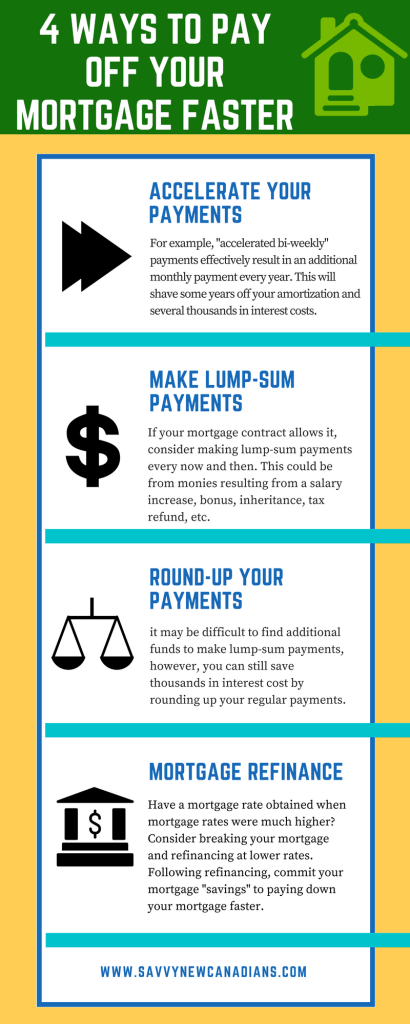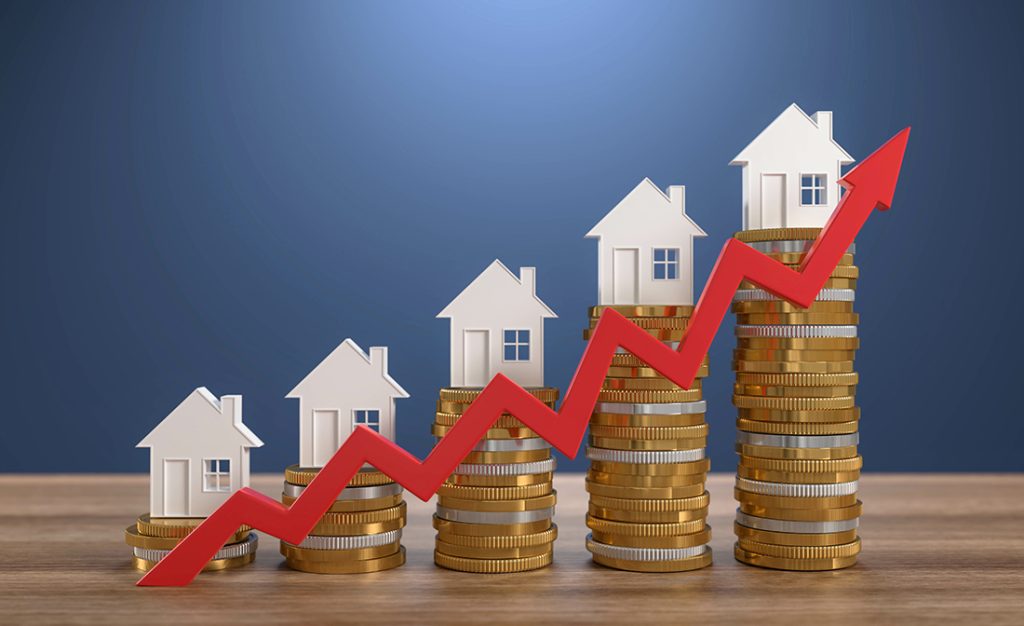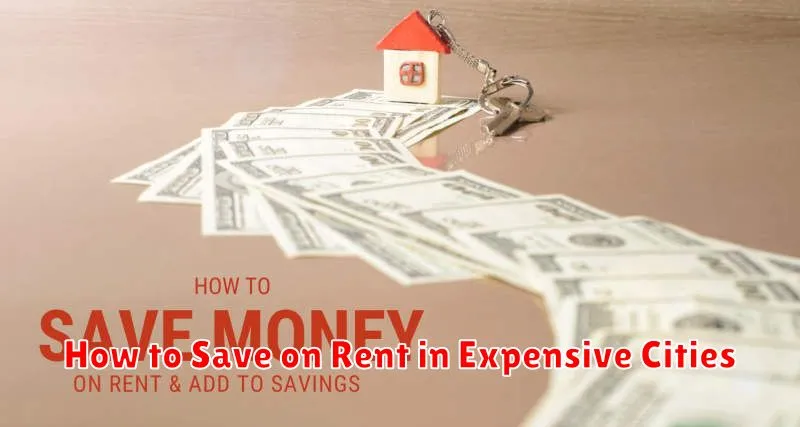For many homeowners, the mortgage represents the single largest debt and a significant monthly outgoing. The dream of living mortgage-free is a powerful motivator, promising unparalleled financial freedom, reduced stress, and the ability to redirect substantial funds towards other life goals. However, the thought of accelerating mortgage payments often conjures images of tight budgets, sacrificed luxuries, and feeling perpetually "strapped."
The good news is that you don’t have to choose between financial freedom and enjoying your life today. With smart strategies, careful planning, and a nuanced understanding of your financial landscape, you can significantly shorten the life of your mortgage, save tens of thousands in interest, and achieve that coveted debt-free status without feeling perpetually deprived. This comprehensive guide will walk you through actionable strategies, essential considerations, and a roadmap to pay off your mortgage faster, on your terms.
Why Pay Off Your Mortgage Early? The Compelling Benefits
Before diving into how, let’s solidify why accelerating your mortgage payoff is a worthwhile endeavor for many. The benefits extend far beyond just eliminating a bill:
- Massive Interest Savings: This is often the most significant and quantifiable benefit. Mortgages are structured so that a large portion of early payments goes towards interest. By paying extra principal, you directly reduce the total interest you’ll pay over the life of the loan. Even small, consistent extra payments can shave years off your mortgage and save you thousands.
- True Financial Freedom and Peace of Mind: Imagine a life without a mortgage payment. This frees up a substantial portion of your monthly budget, offering incredible flexibility for retirement savings, travel, investments, or simply enjoying your life without the weight of housing debt. It provides an unparalleled sense of security, especially during economic downturns or job transitions.
- Increased Equity: Every extra dollar you put towards your principal immediately translates into more home equity. This increases your net worth and can provide a valuable asset for future needs, such as a home equity line of credit (HELOC) or a reverse mortgage in retirement, if needed.
- Reduced Risk: Eliminating your mortgage payment significantly lowers your fixed monthly expenses. This reduces your financial vulnerability to unexpected events like job loss, illness, or market fluctuations.
- Psychological Boost: The satisfaction of owning your home outright is immense. It’s a tangible achievement that can motivate you to pursue other financial goals.
Understanding the "Strapped" Fear: Balancing Goals and Lifestyle
The apprehension about feeling "strapped" is valid. Aggressively paying down a mortgage often implies sacrificing current enjoyment for future gain. However, the key lies in finding a balance. This guide focuses on strategies that are sustainable and adaptable, allowing you to gradually increase your payments without drastic lifestyle changes. It’s about finding money you can spare, not necessarily money you can’t live without.
Actionable Strategies to Accelerate Mortgage Payoff Without Pain
The following methods offer a spectrum of approaches, from subtle adjustments to more impactful financial moves. The best strategy (or combination of strategies) for you will depend on your current financial situation, discipline, and long-term goals.
1. Make Small, Consistent Principal-Only Payments
This is arguably the easiest and least disruptive method. Even an extra $50, $100, or $200 added to your monthly payment, specifically designated for principal, can have a profound impact over time.
- How it Works: Instruct your mortgage servicer to apply the extra amount directly to the loan’s principal. This reduces the principal balance, meaning future interest calculations will be based on a smaller amount, and more of your regular payment will go towards principal.
- Why it Doesn’t Feel Strapped: You’re likely already spending these small amounts on discretionary items. By consciously redirecting them, you make a powerful financial move without feeling a significant pinch.
- Example: On a $300,000, 30-year mortgage at 6% interest, adding just $100 to your monthly payment could save you over $30,000 in interest and shave more than three years off your loan. Imagine the impact of $200 or $300!
2. Implement a Bi-Weekly Payment Schedule
This popular strategy subtly adds an extra full payment each year without requiring you to find a large lump sum.
- How it Works: Instead of making one full mortgage payment per month, you make half of your payment every two weeks. Since there are 52 weeks in a year, this results in 26 half-payments, which equates to 13 full monthly payments annually (26 / 2 = 13), instead of the standard 12.
- Why it Doesn’t Feel Strapped: The difference in each individual payment is negligible. It aligns well with bi-weekly paychecks, making it easier to budget.
- Example: If your monthly payment is $1,800, a bi-weekly payment would be $900. You’d make $900 every two weeks, totaling $23,400 per year ($900 x 26) instead of $21,600 ($1,800 x 12). This extra $1,800 (one full payment) goes directly to principal.
3. Allocate Windfalls and Bonuses to Principal
Unexpected money, often referred to as windfalls, presents a golden opportunity to make a significant dent in your mortgage principal without affecting your regular budget.
- How it Works: Whenever you receive a bonus from work, a tax refund, an inheritance, a gift, or any other unexpected sum of money, apply a portion (or all) of it directly to your mortgage principal.
- Why it Doesn’t Feel Strapped: This is money you weren’t counting on for your regular expenses, so dedicating it to your mortgage feels like a bonus for your future self, not a sacrifice.
- Prioritization: It’s crucial to prioritize. Ensure your emergency fund is robust and high-interest debts (like credit cards) are paid off before allocating windfalls to your mortgage.
4. Round Up Your Payments
This is a simple psychological trick that can add up over time.
- How it Works: If your mortgage payment is $1,789.34, round it up to $1,800 or even $1,850. The difference might seem small, but it consistently adds extra principal payments.
- Why it Doesn’t Feel Strapped: The extra amount is so minor that you’re unlikely to notice its absence from your bank account, but your mortgage balance will.
5. Refinance to a Shorter Loan Term
If interest rates have dropped or your financial situation has significantly improved, refinancing can be a powerful tool.
- How it Works: Instead of refinancing from a 30-year to another 30-year loan, consider a 15-year or 20-year mortgage. While the monthly payment will be higher, the interest rate is typically lower, and you’ll pay off the loan in a fraction of the time, saving a colossal amount in interest.
- Why it Might Not Feel Strapped (if done right): This strategy requires a careful assessment of your budget. If your income has increased substantially since you first bought your home, you might be able to comfortably afford the higher payments of a shorter-term loan without feeling stretched.
- Considerations: Be absolutely sure you can afford the new, higher monthly payment before committing. Factor in closing costs associated with refinancing.
6. Recast Your Mortgage (If Available)
A lesser-known option, mortgage recasting (or re-amortization) can lower your monthly payments after you’ve made a large lump-sum principal payment.
- How it Works: After making a significant principal-only payment (often requiring a minimum amount, e.g., $5,000-$10,000), your lender recalculates your monthly payments based on the new, lower principal balance, while keeping your original interest rate and loan term.
- Why it Doesn’t Feel Strapped: While it doesn’t shorten the term of your loan, it significantly reduces your monthly payment. This frees up cash flow, which you can then choose to put back into extra principal payments, save, or use for other goals. It’s a way to de-risk your budget after a large principal payment.
- Considerations: Not all lenders offer recasting, and there’s usually a small fee. It does not change your interest rate or shorten your loan term unless you choose to continue making your original higher payments.
7. Cut Expenses and Redirect the Savings
This is a classic budgeting strategy that directly fuels your mortgage payoff goal.
- How it Works: Conduct a thorough review of your monthly expenses. Identify areas where you can cut back (e.g., dining out less, canceling unused subscriptions, reducing entertainment costs). Whatever you save, commit to sending that exact amount as an extra principal payment to your mortgage.
- Why it Doesn’t Feel Strapped: You are intentionally finding "found money" within your existing budget. The "sacrifice" is often minor lifestyle adjustments that can be empowering, knowing they contribute to a larger financial goal.
- Tip: Automate these savings. Set up an automatic transfer from your checking account to your mortgage principal on payday.
8. Leverage "Found Money" from Raises or New Income Streams
Every time your income increases, resist lifestyle creep and instead direct a portion of that new money towards your mortgage.
- How it Works: If you get a raise, a new job with higher pay, or start a side hustle, don’t just absorb all of it into your spending. Take a percentage (e.g., 50% or 75%) of the net increase and add it to your monthly principal payment.
- Why it Doesn’t Feel Strapped: This is money you didn’t have before, so you won’t miss it. It allows you to accelerate your payoff significantly without feeling like you’re taking money away from existing needs.
Important Considerations Before Accelerating Your Mortgage Payoff
While paying off your mortgage early offers significant advantages, it’s not always the absolute best financial move for everyone, in every situation. Consider these factors carefully:
- Emergency Fund First: Before making any extra mortgage payments, ensure you have a fully funded emergency fund (typically 3-6 months of essential living expenses) in an easily accessible, liquid account. This is your primary financial safety net.
- High-Interest Debt Priority: If you have credit card debt, personal loans, or other debts with significantly higher interest rates than your mortgage, pay those off first. The guaranteed return from eliminating a 15-20% credit card interest rate far outweighs the savings from a 5-7% mortgage.
- Opportunity Cost: Every dollar you put towards your mortgage is a dollar that cannot be invested elsewhere. If you have access to investment opportunities (e.g., 401k with employer match, Roth IRA, diversified index funds) that have a reasonable expectation of earning a higher after-tax return than your mortgage interest rate, it might be more financially optimal to invest those extra funds.
- Example: If your mortgage rate is 6% and you could reasonably expect a 8-10% return in the stock market (over the long term), investing might create more wealth. However, the "guaranteed" return of paying off your mortgage (your interest rate) is risk-free.
- Prepayment Penalties: Some mortgages, particularly older ones or those with specific terms, may include prepayment penalties if you pay off a large portion of the principal too quickly within a certain timeframe. Always check your loan documents or contact your servicer to confirm.
- Tax Implications (Mortgage Interest Deduction): In the U.S., homeowners can deduct mortgage interest paid on their federal income taxes, potentially reducing their taxable income. As you pay down your mortgage faster, the amount of interest you pay (and thus deduct) decreases. For some, especially those in higher tax brackets, this deduction can be valuable. Weigh the benefit of the deduction against the interest savings of early payoff.
- Other Financial Goals: Don’t let mortgage acceleration overshadow other crucial financial goals like retirement savings, college funds for children, or even a down payment on an investment property. A balanced approach often yields the best long-term results.
Creating Your Personalized Mortgage Payoff Plan
-
Assess Your Current Financial Situation:
- Budget Review: Understand exactly where your money goes. Use budgeting apps, spreadsheets, or pen and paper.
- Debt Inventory: List all your debts, their interest rates, and balances.
- Emergency Fund Status: Confirm it’s robust.
- Income Stability: How secure is your job? Are there opportunities for raises or additional income?
-
Set Realistic Goals:
- Do you want to shave 5 years off your mortgage? 10 years? Or pay it off entirely by a certain age?
- Start small. Aim for an extra $50-$100 a month initially, then gradually increase as your budget allows.
-
Choose Your Strategies:
- Select one or two methods from the list above that resonate with your comfort level and financial capacity.
- Consider combining strategies (e.g., bi-weekly payments plus allocating tax refunds).
-
Automate, Automate, Automate:
- Set up automatic transfers for your extra principal payments or bi-weekly schedule. This removes the need for willpower and ensures consistency.
-
Track Your Progress:
- Regularly check your mortgage statements to see the principal balance decrease.
- Use online mortgage payoff calculators to visualize the impact of your extra payments. Seeing the years and interest savings disappear can be incredibly motivating.
-
Review and Adjust:
- Life changes. Revisit your plan annually, or whenever there’s a significant life event (new job, marriage, birth of a child, unexpected expense). Adjust your extra payments up or down as needed.
Conclusion: Your Path to Mortgage Freedom Awaits
Paying off your mortgage faster doesn’t have to be a daunting, deprivation-filled journey. By adopting a strategic and consistent approach, you can significantly reduce your interest burden, build equity, and accelerate your path to true financial independence without feeling "strapped."
Start with small, manageable steps. Automate your efforts. Prioritize your emergency fund and high-interest debts. And most importantly, celebrate every milestone along the way. The peace of mind and financial flexibility that come with being mortgage-free are invaluable, and with these strategies, that dream is well within your reach.
Disclaimer: This article is intended for informational purposes only and does not constitute financial advice. It is recommended to consult with a qualified financial advisor to discuss your specific financial situation and make informed decisions tailored to your individual needs and goals. Always verify terms and conditions with your mortgage lender regarding extra payments, prepayment penalties, and recasting options.



